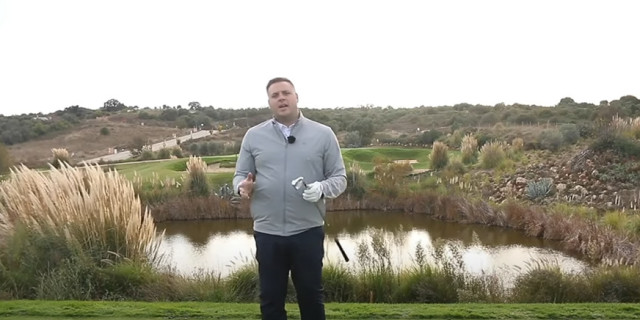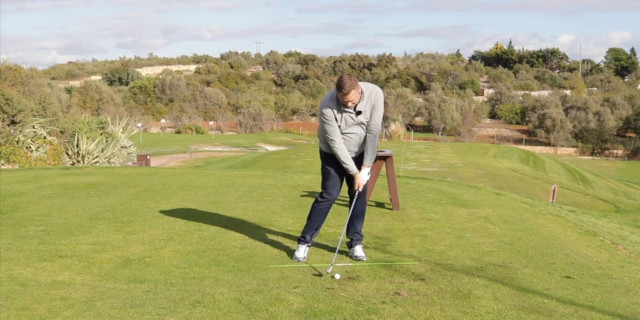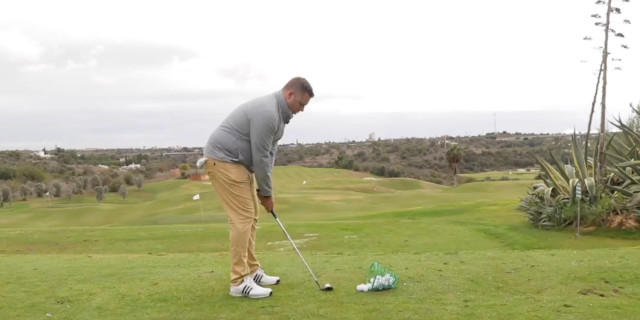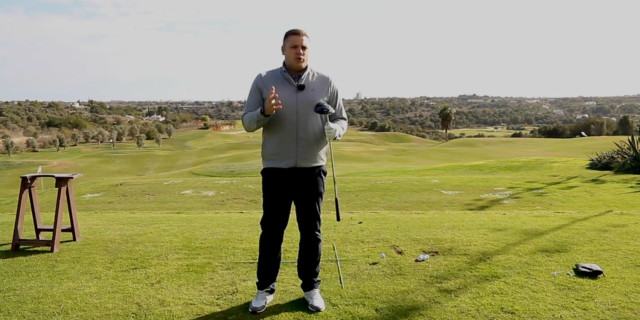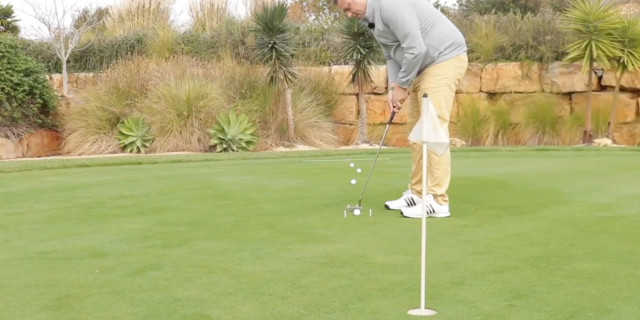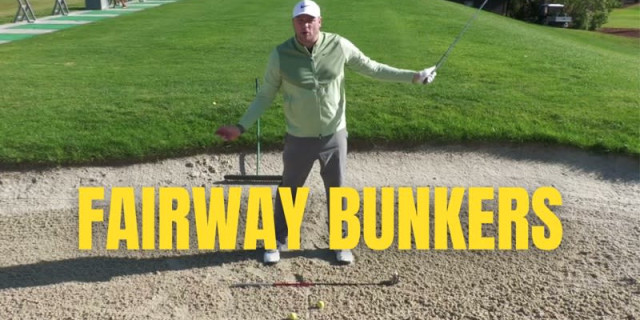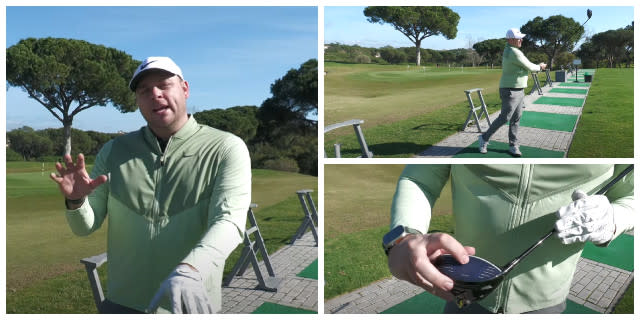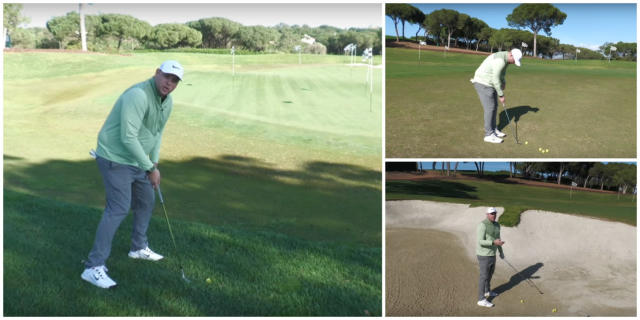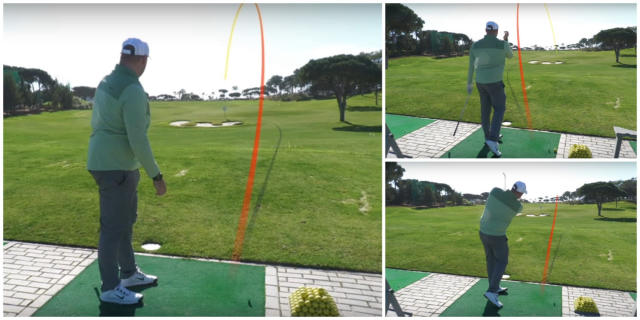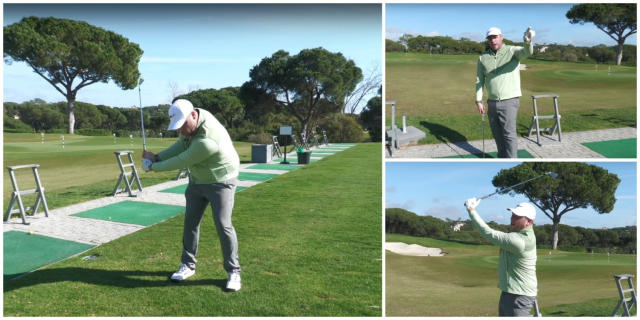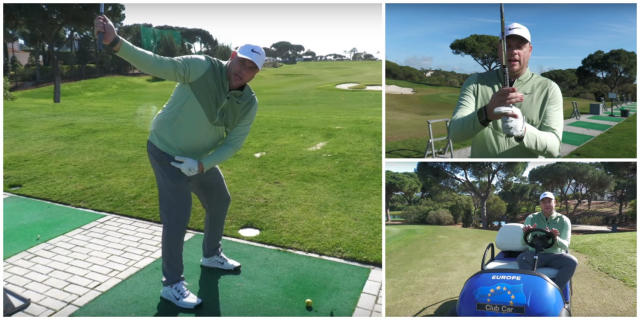Useful Practices - Out With Old in With The New
This is a guest post from Zen Golf Associate and Golf Performance Psychology Coach John Taylor. John launched his ground-breaking What's in the Bag in 2020 utilising his expertise from the world of NLP, i3 profiling, and Zen Golf.
This is week #3 in a series for golfers who want to get more from their golf in relation to both enjoyment and performance and for those golfers that may wonder what it would be like to be coached One-to-One by a Golf Performance Psychology Coach.
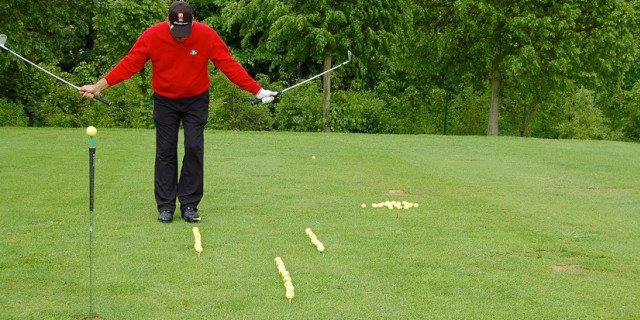
It is week #4 of 16 Handicapper Andy Golfer's journey together with Golf Performance Psychology Coach John Taylor (J.T.), and this week they discuss Useful Practices together.
Don't forget to follow the formula.
C.L.U.B
Character.
Language.
Useful and Unhelpful Practices.
Behaviours and Emotions
Andy is putting time on and off the course with J.T. to become a more composed free-flowing, thinking golfer. Last week they covered the power of Language Patterns and the impact of words.
J.T.: "Andy, how did you find last and have you put into practice what we discussed around language patterns and has anything changed."
Andy: "Hi JT., I was out playing the other day and said to myself that I was grateful to be out and to enjoy moment by moment. I felt more at ease."
"I found that I was not so fixated on the outcome and that I could swing the club without thinking. I have deleted certain words and changed them to get a different meaning. It does work. Don't get me wrong; I understand that you have to set milestones to improve. We have been starved of golf for so long this time around that I am happy to be out playing; it takes the pressure off.
J.T.: "How was your overall consistency?
Andy: "I played better on the back nine than before. I found myself not labelling it the way I used to. I said to myself; It's another set of holes on the course; that's all it is. I now know I was over complicating the situation, which led to confusion."
J.T.: "You have shown and demonstrated with a few adjustments that the power of your words will affect your game. Keep going."
Today's Topic.
Useful and Non Useful, Out with the old and in with the new. Golfers set a routine, and over time elements of the practice will change. Overthinking and analysing will lead to confusion and doubt. Don't be afraid to try a new routine. Push yourself a little and break free from the norm.
Practising comes with a lot of dedication. The average amateur golfer doesn't have time on their hands to practice much. You can adopt practising the mental game in between rounds. Practising Mindfulness or Learning to Meditate is an excellent way to help you stay focused; training the mind away from golf is as essential as playing. This will support you to react better.
What is Mindfulness?
A mental state achieved by focusing one's awareness on the present moment while calmly acknowledging and accepting one's feelings, thoughts, and bodily sensations, used as a therapeutic technique.
Are you ready to take your game to the next level?
J.T.; Today, I would like to discuss how you practice, talk about your routine and what works and what doesn't. What patterns are you running that you feel no longer serve you? think about habits? What patterns are you now starting to introduce that work?
Andy; "I have been getting worried about my ability and concerned that I don't fit in or compete leading up to a game, focusing too much on the results and trying to post a score, even before I have hit the ball."
I have been expecting to get the results and scores required to win. I am now starting to realise that when I become grounded in the situation, it slows down my thinking. I am introducing a more calm state of being.
J.T: "If we let go of expectation, it can help ease the process and increase performance. In golf, nothing is guaranteed. Expectations lead to disappointment which will create a dip in our mood. How do you deal with good and bad shots when practising?
Andy:" In the past, I would find myself focusing on bad shots a lot. I’d try to figure out what went wrong and fiddle with my swing, trying to fix it. It usually got worse when I tried to correct my mistakes. I’d also have negative self-talk, I’d say to myself, ``you always do that you idiot, or hate it when I hit that shot.”
J.T.;" Do you remember the exercise we did around unblocking?
You wrote down all the things that you don't like about how you practice, physical and mental prep, then everything you wanted to think instead. Then you set out your routine to focus on helpful self-talk."
Andy;" I will do this again, and I’ll put it into practice and share with you next week how I get along."
J.T.; "Perfecting your craft takes time, patience and persistence you never know when it will pay off what you learn and install now will serve you well. This is all part of the preparation.
Thought patterns and mental routines you may have installed some time ago that were once useful in some way may not be serving you well now; some may have never served you well and will have limited your ability to play better golf.
If you are reading this and you are hard on yourself on the golf course, think about what you would think of someone if they spoke to you out loud in real life the way that you talked to yourself. Would you be friends with that person?
Be kind to yourself. Give yourself a break. You’re human, and you’re going to make mistakes.
- Don’t compound your mistakes by beating yourself up. It’s unhelpful please don’t waste time trying to work out what you did wrong and fix it on the course.
- Do forget your mistakes, move on and focus on the good shots.
- Do stop yourself when you feel the need to beat yourself up. Stop and visualise where you want the next shot to go instead.
Stayed tuned; next week will be discussing Behaviours and Emotions.
Previous Weeks
Week 1 - What Is Stopping You Playing Your Best Golf?
Week 2 - Play Your Own Game And Be Yourself
Week 3 - Change Your Language To Get a Better Outcome
What's in the Bag is centered around in-depth personality profiling using i3, self-awareness, and mindfulness. The following article is the first feature in a 4 part weekly series aimed at the average golfer who wants to get more from their golf in relation to both enjoyment and performance.

For more information about What's in the Bag visit: whatsinthebag.club
Related Content:

